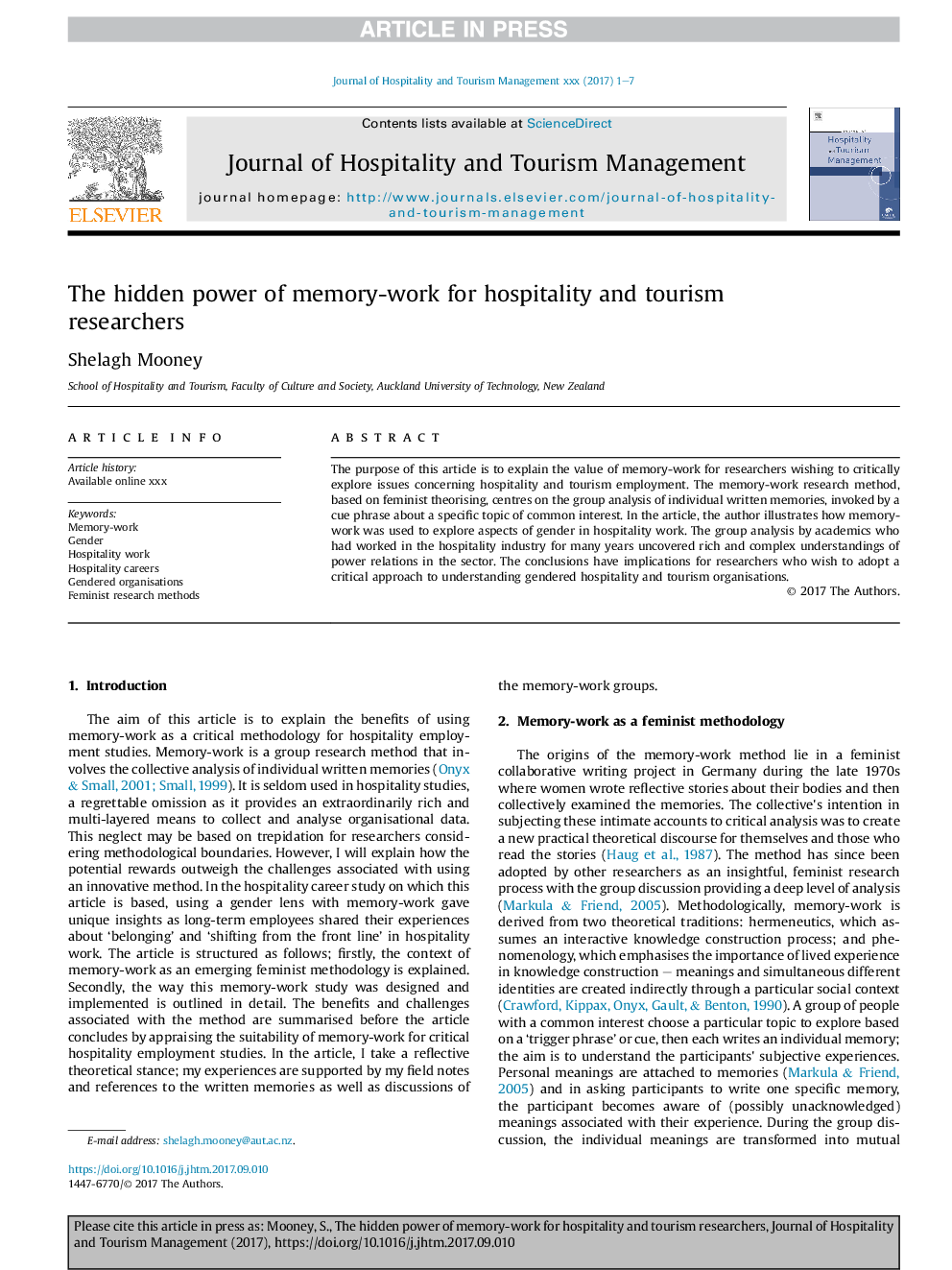ترجمه فارسی عنوان مقاله
قدرت مخفی کار حافظه برای محققان مهمان نوازی و گردشگری
عنوان انگلیسی
The hidden power of memory-work for hospitality and tourism researchers
| کد مقاله | سال انتشار | تعداد صفحات مقاله انگلیسی |
|---|---|---|
| 108596 | 2017 | 7 صفحه PDF |
منبع

Publisher : Elsevier - Science Direct (الزویر - ساینس دایرکت)
Journal : Journal of Hospitality and Tourism Management, Volume 33, December 2017, Pages 142-148
ترجمه کلمات کلیدی
کار حافظه، جنسیت، کار مهمان نوازی، مشاغل مهمانداری، سازمانهای جنسیتی، روش تحقیق فمینیست،
کلمات کلیدی انگلیسی
Memory-work; Gender; Hospitality work; Hospitality careers; Gendered organisations; Feminist research methods;
ترجمه چکیده
هدف این مقاله توضیح ارزش کار حافظه برای محققانی است که مایل به انتقاد از مسائل مربوط به مهمان نوازی و اشتغال گردشگری هستند. روش تحقیق حافظه، بر پایه نظریه فمینیستی، بر تحلیل گروهی خاطرات نوشته شده توسط فردی تمرکز می کند، که توسط یک عبارت نشانه در مورد یک موضوع خاص از منافع مشترک مورد استفاده قرار می گیرد. در مقاله، نویسنده نشان می دهد که چگونه کار حافظه برای کشف جنبه های جنسیت در کار مهمان نوازی استفاده می شود. تجزیه و تحلیل گروهی توسط دانشگاهیانی که در سالهای اخیر در صنعت مهمان نوازی مشغول به کار بوده اند، درک و تفسیر غنی و پیچیده روابط قدرت در بخش را کشف کرده اند. این نتیجه گیری ها برای محققانی که مایل به پذیرش رویکرد انتقادی برای درک شرکت های مهمان نوازی جنسیتی و گردشگری هستند، پیروی می کنند.

